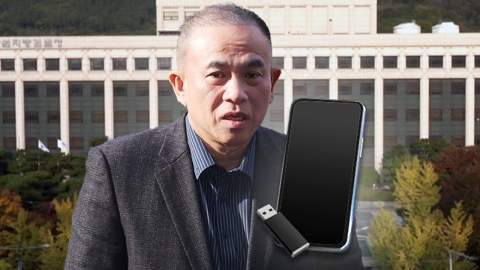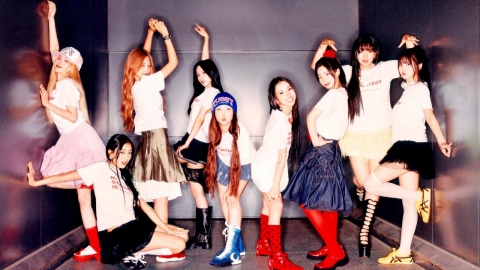■ Starring: Professor Heo Jun-young, Sogang University's Department of Economics
* The text below may differ from the actual broadcast content, so please check the broadcast for more accurate information. Please specify [YTN News START] when quoting.
[Anchor]
We give you the latest economic news quickly and kindly. Start Economy, today we will be with Professor Heo Jun-young of Sogang University's Department of Economics. The launch of the second Trump administration in the United States is about a month away. It is expected that the second administration will implement a stronger trade principle of America-firstism than before, but anyway, I think we are worried about whether we can handle this well.
[Heo Joon-young]
There are two aspects. One is on the side of the United States and the other is on our side, and on the side of the United States, Trump is moving faster than in the first period, and there will be lessons learned from the first period. For example, something like this. I took office in January 2017. It was in August 2018 that China was told to investigate whether China was doing anything strange before imposing tariffs on China. In that sense, it wasn't until a year after he took office that he started to impose tariffs, but an investigation into tariffs went in. What are we doing this time? The U.S. is approaching the country with much faster and more serious intensity, which has already signed customs agreements with Canada and Mexico since the first day before taking office, and is starting to talk about tariffs on these countries. Our position is very unique at that time, even after Trump was elected in the first term, there was impeachment within Korea, but it is still an impeachment situation, so in a way, we are not properly preparing for the second term of Trump, which has become more powerful within us. A lot of the policies that we did under the Biden administration in that regard. In particular, we are investing a lot directly in the United States, building factories, and doing a lot. Regarding the areas that can benefit from the semiconductor law or the inflation reduction law, many say that if the Trump administration comes in, subsidies will be reduced a lot. How much we have access now to issues related to subsidies as well as tariffs. In a way, I think you can think that Golden Time is passing by.
[Anchor]
I'll go over it in detail one by one. The Biden administration has now confirmed that it will pay Micron 9 trillion won, which is its own semiconductor company. Trump also said he would revise the Semiconductor Support Act. This is why semiconductor companies are nervous, right?
[Heo Joon-young]
You can think of it like this. Aren't you hitting Chinese companies very hard and preventing them from entering China and exporting Chinese companies? Then, there will be a limit to what Chinese companies can do. Especially in the U.S. market. But if you look at the U.S. market recently, there are DRAM memory semiconductors. Looking at DRAM production, Korea accounts for about 70% of the world. The U.S. accounts for about 20% of DRAM production, and the recent rise in U.S. companies, especially Micron, has been increasing. And in the case of advanced memory chips, Micron shares 2% in the United States, and these are plans to gradually increase.
In the end, we will prevent China from doing well and benefit American companies. It's a policy on these things.
Then, I think we have no choice but to think that Korean companies have relatively high market share now, but in the mid- to long-term, American companies have a slightly wider range of behaviors.
[Anchor]
I saw it through the graphic a little while ago, but subsidies are expanding for domestic companies, and Korean companies are showing signs of prospects. Then, laws such as the Special Act on Semiconductors and the Electrical Network Act are pending in the National Assembly, and there is a prospect that the National Assembly should deal with this, right?
[Heo Joon-young]
Regarding semiconductors, I think it is necessary to compare them with advanced countries. In developed countries, as you have recently said, there are many cases where direct subsidies are given to semiconductor companies. However, in the case of Korea, direct subsidies have not yet been entered, but tax credits are being entered. Even if all tax credits are included, it is now shown that the Korean government's semiconductor support is one-tenth that of Japan and one-fifth that of the United States. In that respect, the competition for semiconductors is getting fiercer around the world than expected, and as we just pointed out, the U.S. is applying its own priority to semiconductor companies. In this situation, I don't think the ruling and opposition parties will have much disagreement on how to quickly provide support for these things so that Korean companies can maintain their competitiveness.
[Anchor]
I'm worried about not only semiconductors but also electric vehicles and batteries. It was reported that the U.S. President Trump's transition team is working on a plan to abolish subsidies and impose tariffs on batteries in electric vehicles. How do you expect this to affect our country?
[Heo Joon-young]
Korean companies have done a lot of cases of batteries and electric cars. So I built a lot of factories in the U.S., and one of the biggest reasons for building them was that if you put it together in the U.S. and use a certain amount of materials from the U.S., you'll be subsidizing consumers up to $7,500 when you buy this car. So, in a word, there are parts that have become price competitive. However, it is a basic position to reconsider these parts. As I said a while ago, this is what Scott Bessent, who was confirmed as finance minister, is saying. I think we need to reduce inefficient government spending, and they say that the most representative of inefficient government spending is subsidies and IRA subsidies. If the second Trump administration comes in, there is a possibility that the U.S. will adjust to a more convenient direction, such as a full renegotiation or a reduction in subsidies. We only think of large companies that make finished cars, but there are also many small and medium-sized companies that make parts that go in. There are still questions about how much these companies will be able to respond, so it seems true that the government has to come forward.
[Anchor]
You pointed out about batteries, electric vehicles, and semiconductors, but Korea's domestic demand is not good, but the economy was supported by exports in these areas. Anyway, uncertainties are maintained in the Korean political situation and the business community, so there are concerns that such exports will also be disadvantageous or affected by external trust.
[Heo Joon-young]
Looking at the number of exports themselves, export growth has been decreasing recently compared to the same month last year. In fact, it is not safe to say that exports almost supported our economic growth in the first and second quarters. The momentum of exports is falling out now. On top of that, when the second Trump administration comes in on January 20, new policies will begin to be introduced. One of the things we talk about in foreign countries is that the most vulnerable economy for the second Trump administration is the Korean economy, due to various structures. So it is also true that the future of exports seems dark in those areas. In fact, according to a recent study by the Korea Institute for International Economic Policy, Korea's exports can be reduced from $22.2 billion to $44.8 billion when Trump's 20% universal tariff comes in. Korea's exports in 2023 will be about $630 billion. So, if it becomes the worst scenario and exports decrease by about $45 billion, exports could decrease by 7% as of 2023. This is what happens. I keep saying the same thing again and again today, but I need to respond, but to what extent I am responding. If you think carefully about Trump, he's a very powerful person. For countries with weak leadership, it is very likely that negotiations will be postponed to the next level. There is a high probability that they will tell you to recover your country's leadership and sit at the negotiating table. In that sense, I think there are parts where we are less responsive.
[Anchor]
What do you think of the Korea-US FTA if the professor launches the second Trump?
[Heo Joon-young]
There's something very interesting. During the Moon Jae In administration, the Korea-U.S. summit was held in Washington, DC, USA in June 2017. At this time, President Trump suddenly said at a press conference that he would renegotiate the Korea-U.S. FTA, even though there was no consultation between working-level officials. So what was done at this time was that we started the steel quota system in these things, so that we wouldn't allow Korean steel to pass over more than a certain amount of a year. As some of you may remember, I said that I would impose high tariffs on washing machines in Korea. There is a possibility that it will come out unexpectedly like this. That's why it's like this. Even the negotiations he had in the past are in a position where he is reversing. For example, as I said earlier, the customs agreement between Canada, Mexico, and the United States was also called the USMC, which means that we will reconsider this as well. A situation in which he is reversing even his old promise. I can tell you why the Korea-US FTA would be an exception.
[Anchor]
The government must have a lot of concerns about foreign trade issues related to the United States, but from the perspective of the domestic business community, foreign trade and exchange rates continue to rise, and legislative content is not passing quickly. I found a mid-sized company event as the first public livelihood of Acting President Han Deok-soo.
[Heo Joon-young]
When you think of Korean exporters, you usually think that large companies export, but in terms of the number of exporters, there are a lot of mid-sized companies. In terms of numbers, most of them are mid-sized companies. In the end, there was a part where Korea's exports were good because these companies took care of exports very firmly. In that respect, mid-sized companies and companies that have a lot of job creation effects are mid-sized companies. And on the other hand, one of the fun things is that the service industry and the manufacturing industry have different structures, and it is usually good to have high productivity. In the service industry, new companies entering the market are productive. However, in the case of the manufacturing industry, the productivity of companies that have survived for about 5 years and 10 years starts to come out very well. In the end, these mid-sized companies are probably companies that survived difficult competition. In that respect, I remember the Prime Minister's emphasis on policies for these medium-sized companies and his requests to do better in the future.
[Anchor]
Also, Minister, I am working hard for the government. I hope we can see practical results. Despite the emergency martial law shock, the KOSPI rose for four consecutive days, but it fell behind the strong foreign selling in the market and gave up the 2,490 mark. How do you see the KOSPI flow?
[Heo Joon-young]
When I compare it now, it is slightly out of 0.5% compared to the closing price of the day before martial law. I don't think I've recovered since then. I was going up to recover, but I fell back in. The escape of foreigners is very noticeable. In my view, one major uncertainty disappeared when the impeachment motion was passed last week. However, in our opinion, there were doubts about the Korean stock market or Korea's economic fundamentals before the martial law political situation, so I don't think these will be resolved in a moment. In that respect, in terms of the economy, I think it's time for political, industrial, and academic circles to move as one team.
[Anchor]
Anyway, our index seems to be at the resistance level, but if you look at the exchange rate, the exchange rate has risen by 2 won from the previous trading day, so it is maintained at 1435 won and 1430 won. There is a prospect that it may surpass 1,500 won in the future, what do you think?
[Heo Joon-young]
First of all, I'd like to share two things I need to see in the short term and something I need to see by March next year. There is a FOMC this week, but it is said that the FOMC is likely to make a hawkish cut. Recently, the pace of inflation in the U.S. has been so slow that the U.S. economy is solid, and because of these things, it will make a hawkish cut. I think the market will predict once next year and twice over the next year. So at the end of next year, I think it will be around 4.0 at the top, so I think the rate cut will be very slow. This is obviously a very bad aspect of Korea's exchange rate. If I look at the event until March next year, when I think about when the exchange rate is likely to fluctuate, won't this lead to structural weakness in Korea as the new policies of the Trump administration come in? If there are things about Korea's weakness, or because the won moves with the yen and yuan recently, policies that hit China harder than expected or damage Japan will come out. How will the U.S. move a little more in the future while there is no big uncertainty about whether the won will go to the 1,500-won level? And what policies will come out of the Trump administration. I think I'll be influenced by these things. The Bank of Japan is also going to raise interest rates, but at what rate will it do? I think it's related to these things, too. The market consensus is that the central bank of Japan will raise it about three times next year, so I think there will be interest rates up to 1% as of the end of next year, and the speed itself will be greatly affected.
[Anchor]
Let's take a look at the New York Stock Exchange. The Nasdaq Composite is at an all-time high.
[Heo Joon-young]
As technology stocks rebounded, Nasdaq rose 1.24 yesterday. The S&P is up 0.38 and Dow is out a little bit. As it was on the news tip earlier, Japan's Softbank said it would invest $100 billion in the U.S., which seems to have helped technology stocks, and there seems to be another help in the situation where it is almost predicted that there will be a rate cut at the FOMC this week. In fact, both Nvidia and M7 are up.
[Anchor]
Does the professor who cuts interest rates expect 0.25?
[Heo Joon-young]
This week, we're going to make it 0.25. I think it would be very surprising if I didn't.
[Anchor]
I see. So far, I was with Professor Heo Jun-young of Sogang University's Department of Economics. Thank you for talking today.
※ 'Your report becomes news'
[Kakao Talk] YTN Search and Add Channel
[Phone] 02-398-8585
[Mail] social@ytn. co. kr
[Copyright holder (c) YTN Unauthorized reproduction, redistribution and use of AI data prohibited]
Economy
More- The Great Whale arrives at the working area of the drilling ship...Exploration starts soon.
- KOSPI and KOSDAQ both fall...Exchange rate is 1,437 won.
- Samsung Electronics will hold a global strategic meeting for three days from today.Next year's business strategy discussion
- KOSPI Collapses Around 2,490 On 'Cell Korea'The won-dollar exchange rate once reached 1,438 won.


![Meaningful message from Han Dong-hoon who resigns?The necktie in the spotlight. [Y Record]](https://image.ytn.co.kr/general/jpg/2024/1217/202412170747176027_h.jpg)





